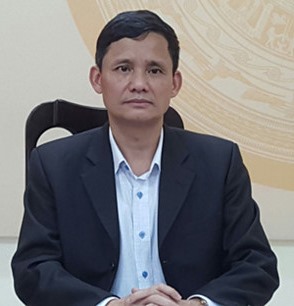.jfif) Opinion
Opinion

Nguyễn Trọng Ninh, director of the Housing and Real Estate Market Management Department, speaks to the Kinh tế Việt Nam and Thế giới (Việt Nam and the World Economy) weekly on developing affordable housing projects.
 |
| Director of the Housing and Real Estate Market Management Department Nguyễn Trọng Ninh. |
Nguyễn Trọng Ninh, director of the Housing and Real Estate Market Management Department, speaks to the Kinh tế Việt Nam and Thế giới (Việt Nam and the World Economy) weekly on developing affordable housing projects.
The government aims to build more housing for low income people and the poor. The programme, however, has progressed slowly. Why is this?
Housing demand in our country is huge, particularly among the poor and people with low income. The Government has adopted many policies to help these people buy houses of their own at a low cost – a dream they have nurtured for years.
However, in the last five years, the Government’s social housing programme was able to accomplish just 37 per cent of the target set for low income people living in urban areas and workers in industrial parks. In my opinion, the main obstacle is the lack of “clean” land.
At the second session of the 14th National Assembly, lawmakers complained about a shortage of land and capital to implement the affordable housing programme. How can these problems be solved?
Clean land and capital are the two most essential factors for the programme. Legally speaking these two factors are reflected in the Law on Housing and the Government’s Decree 100/2015/NĐ-CP issued on October 20, 2015.
According to Decree 100, all commercial housing projects or housing programmes in urban areas must allocate at least 20 per cent of their land for social housing.
Meanwhile, for workers in industrial parks, the Government Decree also allows the use of part of the land to build apartments for workers.
From 2013-2016, the Government adopted a special credit programme of VNĐ30 trillion (US$1.33 billion) for a social housing programme. Unfortunately, that credit programme has ended. We now have to look for other sources to support investors and enterprises and people wanting houses of their own.
The Government has assigned the Việt Nam Bank for Social Policies and commercial banks to be the focal point in lending money to implement the government’s social housing programme. The interest rate will be decided by the Prime Minister Nguyễn Xuân Phúc.
However, the amount of money allocated to the programme has not been decided. Under our Budget Law, money will be available for the programme depending on the mid-term investment fund plan. But until now the fund has not been decided. At a recent meeting, the National Assembly agreed on a five-year master plan for the mid-term investment fund. But, detailed funding for each programme or project will be decided in the upcoming meeting of the National Assembly slated for May, 2017.
Low cost is the most attractive part of social housing projects. But many people have complained about their quality. Do you have any comment on this?
To have housing projects with good quality with reasonable prices or with low price, we need three main factors.
For example, there is the case of an affordable housing project in the southern province of Bình Dương. It has enjoyed effective support from the provincial Party Committee and People’s Committee. The construction company that undertook the project was the Becamex Binh Dương. The company was given clean land to build the housing project. In addition, Bình Dương Provincial People’s Committee advanced billions of Vietnamese đồng to help Becamex finish the project on time.
So, I can say in the case of the Bình Dương affordable housing project, it has enjoyed all three factors: the authorities and company’ determination, available land and finance.
Recently, private corporations like VinGroup and Mường Thanh, have expressed their willingness to participate in building affordable housing projects or cheap housing apartments. I think this is a good sign for the housing segment. However, in my opinion, if we want to attract more construction companies to the government’s programme to build more affordable housing projects for low income people, we need to create an environment of transparency and accountability in our administrative system.
I’m confident that with preferential policies and the practice of transparency and accountability in all government offices/agencies, income people will soon have their own flats to live in. — VNS




